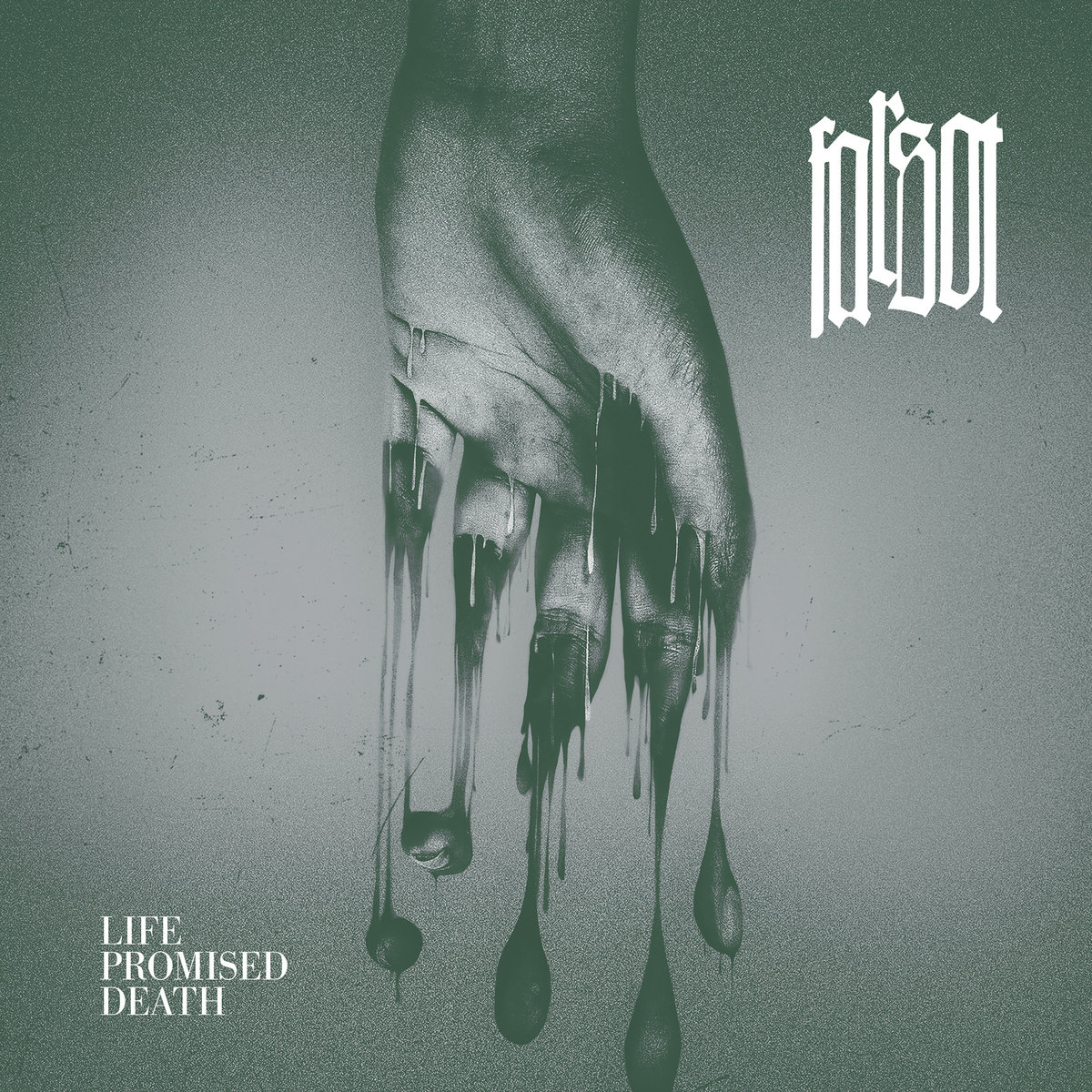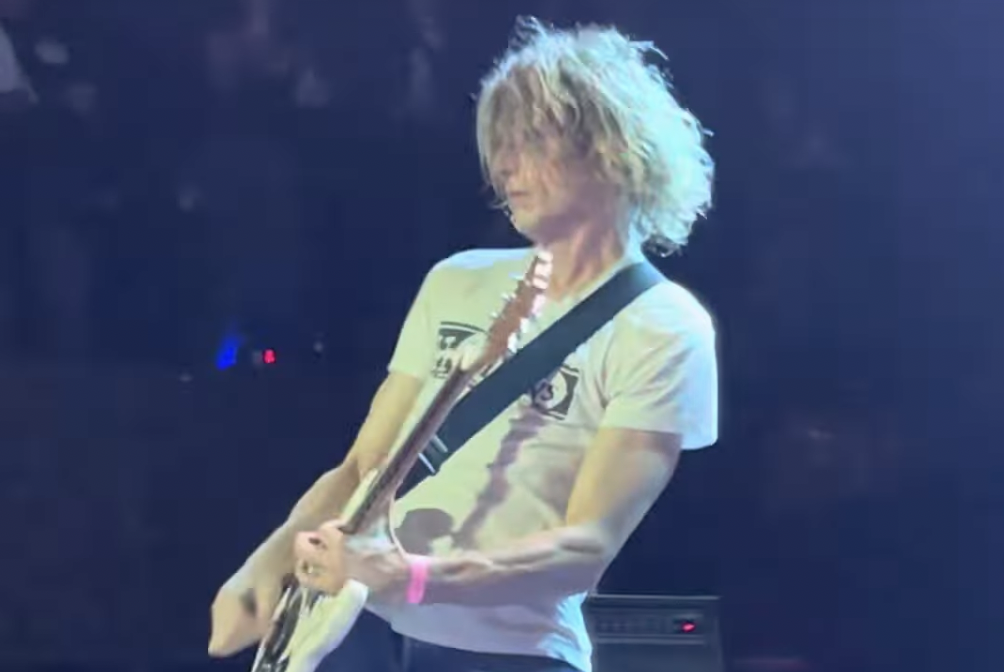For the last quarter-decade, Farsot have been as emotionally barren as they are mysterious. They brandish Roman numerals as pseudonyms and release an album once every seven years on average, without much chatter during that downtime aside from occasional interviews. Yet, their music is vulnerable and mature. Black metal is not devoid of emotions, because they are usually culled from a pool of similar sentiments: desolation, misanthropy, depression, to name a few, with Metal Archives being a treasure trove for helping readers identify the precise negative emotion they’re feeling.
Farsot deal with these themes thoughtfully, discussing and dissecting each with brief eruptions that dissuade into brooding passages. They reflect how we process emotions by translating our outbursts, rummaging, and eventual acceptance through black metal.
Their newest album, Life Promised Death, is not an explosive black metal album, however. The ripping opening on “Buoyant Flames” is as close as Farsot get to traditionalism. Life Promised Death is, instead, cloudy and morose. It asks for your attention not through ambiance but by slowly peeling itself back and laying its softer elements bare. There are few moments that grip your spine through your throat aside from “Buoyant Flames,” as Farsot primarily de-escalate tension rather than accelerate it. The lapping riffs are vehicles to the next pensive section, which the record is replete with.
Life Promised Death‘s alternative approach to black metal incorporates goth rock and a measured hand to the formula. It emphasizes atmosphere and dynamics while being tighter than its predecessor, 2017’s Fail-Lure. Though the track lengths are comparable, Life Promised Death is more immediate than a track like “A Hundred to Nothing” from Fail-Lure, the wintry instrumental that closed the record.
The former is frigid, off-putting, and cloaked in moodiness. These are tools to represent melancholy, not a means to press it onto the audience. They are more effective when combined with Farsot’s intense focus on lyrics. Their words are clear and pronounced, delivered through rasps or clean vocals, wrestling with personal failures and the types of personalities that can—or cannot—Tolerate failures, often to the detriment of others. “Descent” conveys a man losing hope and resigning himself to silence, but it’s stated as a matter-of-fact rather than desolation, presenting a more realistic outcome—Surrender often isn’t dramatic. It’s a byproduct of learned helplessness over a prolonged morose timeframe, the same one found on Life Promised Death.
As Farsot say, “Depth, aggression and emotion do not go hand in hand with beats per minute.” In a single sentence, the group have done a better job at marketing their music and philosophy than I did in three paragraphs. Their responses to my questions about grunge, Life Promised Death’s themes, and their evolution across 25 years are just as well-thought-out.
…
…
How did the seven years between Life Promised Death and Fail-Lure affect the new album’s development?
III.XXIII: As always, we started working on new songs immediately after the release of Failu-Lure. Of course, there was a short phase of “shaking and reassembling”. But the material for the last album was completed some way before its release. The professional and social calming in the wake of the pandemic definitely helped us to dive even more intensively into the cosmos of songwriting.
We had more freedom privately to prepare creative processes. We were able to use rehearsals as real refuge events. Neither did any gigs or their preparations get in the way. The inspiration that the view of worldly events at this time gave us is also of enormous importance. People are a strange fascination, more and more the source of our work, lyrically and musically.
The press release mentions grunge as an influence on Life Promised Death. What lessons did you take from grunge and apply to Farsot?
III.XXIII: We never consciously set out to take an album in a certain direction or make it sound like anything. Rather, moods are the big leitmotif. And these arise completely subjectively and strongly related to their respective time. Grunge references were more likely to be heard by third parties. For me as the main songwriter, the early 1990s had a strong meaning as I experienced my youth, my fascination with music and, somewhere, my own worldly characterization.
The dark and broken alternative sounds of this time, the youthful social melancholy, are probably deeply anchored and will always resonate a little. I also think that we as humanity are once again getting closer to issues such as the Cold War, anti-social economic behavior, and the brutalization and de-socialization of society. A circle seems to have come full circle.
Life Promised Death is also quite gothic with its themes and pacing. Has goth rock or music been a large inspiration for you?
III.XXIII: Actually less. If so, I would see more subliminal preferences for earlier wave, post-punk and psychedelic rock. Bands like The Cure, Killing Joke, Joy Division, Yes, Pink Floyd, or The Cult are deeply rooted somewhere and have influenced so many bands after them, who then perhaps subconsciously passed on the legacy. Who knows. We have taken on the scent of the musical forest we have been walking through since our puberty. The archetypal Farsot recipe also contains a lot of the people behind its own mature personality.
Much of your catalog deals with human frailty. Why is this such an interesting topic to you?
X.XIX: The topic is simply very tangible. It concerns you and me, just all of us. I write about what moves me at the core, irritates me, makes me think, and challenges me. It’s not easy to master today’s world. It is becoming increasingly complex and fast-paced. In my opinion, people are not made for this. It overwhelms them, they can’t keep up with the speed, and evolution is slower than our actions. We are increasingly suffering from exhaustion, lethargy, depression, and delusions of grandeur. It’s just too much for us and we don’t want to admit it. You cannot hide from the subject. The darkness is waiting right outside the front door, and sometimes it simply takes hold of me so that I find redemption in writing my thoughts down.
I love how much clean singing is on the album, especially on tracks like “Stray Dog.” Not quite a question, just an observation.
X.XIX: Thank you, this was not an easy one, hehe. I changed the chorus again and again. But that’s the exciting thing about writing music and lyrics: you are following how everything becomes more and more complete until a song, an album is finalized. Sometimes it takes a little longer. I’m also very satisfied with how the part has developed and how it sounds.
The new album brings Agalloch to mind for me. I know you often cite earlier black metal bands as influences, but did Agalloch ever influence you?
X.XIX: We have been following the band for a very long time. One of my absolute highlights is still Pale Folklore. The album came out at a time when American black or dark metal wasn’t really catching on in Europe (or at least Germany). I personally lost track of the band after The Mantle because for me, everything had been said. From my point of view, there is no real musical influence, but it cannot be denied that one could discover parallels in a direct comparison. A very important band for the American extreme metal movement outside of death and thrash metal for sure.
I’d love it if you could talk more about the lyrics of “Buoyant Flames.” I know you described the idea as “the contemptuous pursuit of abundance. The delusion of grandeur is ignited by selfishness and greed. Thus, it aims to join an elite that claims to be the apex of existence in an immoral society…” but there seems to be much more there.
X.XIX: The song describes the most pitiful face of humanity. It is about megalomania, contempt, arrogance, apathy, and holds up a mirror against all those whose sole ambition is to catapult themselves to the top, driven by their desperate striving for power. The only ray of hope is to see that after a steep climb, there is a hard fall that brings you back down to earth. It is simply indescribably disgusting that there are individuals who don’t care about anything or anyone around them. They are the real cause of our downfall. The tragic truth is that there will always be this kind of people and they will always try to enforce their own interests, whatever the cost.
Traditional “black metal” seems to appear scarcely on the album. I can only remember “Buoyant Flames” and the end of “Lost Momentum” delving into the style.
III.XXIII: This is not a conscious decision, either. We create dynamic moments based on our gut instinct. Black metal is not a requirement for us. If we feel like aggression, then there will be a part that satisfies our expectations. But this can be expressed in many different ways. Of course, in addition to the early ‘90s from Seattle, we also love the not-so-different counterpart from Norway. They were the most passionate counterpoints of the time. Now, so many years later, the world has moved on. Rules, conventions, and fixed affiliations no longer exist. We are mature individuals who just want to follow our instincts and express ourselves creatively the way we want.
Life Promised Death is more mid-paced and meditative. It’s a great change of pace. How does it interact with the album’s themes?
III.XXIII: In principle, there is no serious change for us in terms of speed. Depth, aggression, and emotion do not go hand in hand with beats per minute, on the contrary. As mentioned before, playing with dynamics means a lot to us. How we create this distinction between loud and quiet, between floating and scratching into the flesh, never follows a pattern and is expressed in maximally different ways. In my opinion, the dense overall result, the intensity of the emotions in all their facets, is always achieved, and deeply interwoven with the lyrical direction, entering a constant dialogue.
X.XIX: As the lyrical theme is usually roughly fixed (human failures and confusions), I let myself be inspired by the music as well as my everyday experiences, thoughts, and reflections. I make notes quite early during the songwriting process. I let myself be driven by the musical aura and imagine which mood fits which song. With Insects, for instance, the earthy, dark basic tenor of the songs literally pushed me in the thematic direction, which was supported by a pseudo-documentary from the 70s. With Life Promised Death, I knew from the beginning that I wanted to get rid of certain themes and let myself be carried away by the song structures and atmosphere, which I think is not too much of a change in pace compared to the two predecessors. But I am biased, hehe.
How has your idea of Farsot as a group evolved over 25 years?
III.XXIII: Everyone always suspects the big master plan behind a band like us. Farsot is not an entirely typical group. We emerged from friends who wanted to put their deep shared love of music into practice themselves. We matured together from point zero. We learned from each other, pushed each other forward, and achieved more together than we could have ever imagined. Only the collective strength of the group achieved this. All the ups and downs have strengthened us and allowed us to move forward.
We now see everything around it very calmly. We are lucky enough not to receive any pressure or creative direction from the label. So, we stick to the goal of producing songs and albums that are perfect for us and that fully express and pacify us. That’s it. That’s what drives us … The personal demands have been extremely high since the first minute and leave few unused opportunities on the track.
If you could speak with the person you were 25 years ago about the band, where do you think you’d agree and disagree?
X.XIX: I think we’ve done a lot of things very right for ourselves. Our friendship has grown even closer; there have never been any major disputes within the band, and we always take the time we need. We all need it to take a deep breath, to pursue other things and that works really well for us. Of course, others would say that we could have pushed the band more, produced albums faster and toured more. But then Farsot wouldn’t be Farsot. For us, our own success has always been the main focus. This success describes the moment when an album is recorded, and we are as happy and enthusiastic as we were almost 25 years ago. This once again happened to us with Life Promised Death.
…
Life Promised Death releases February 16th via Prophecy Productions.



